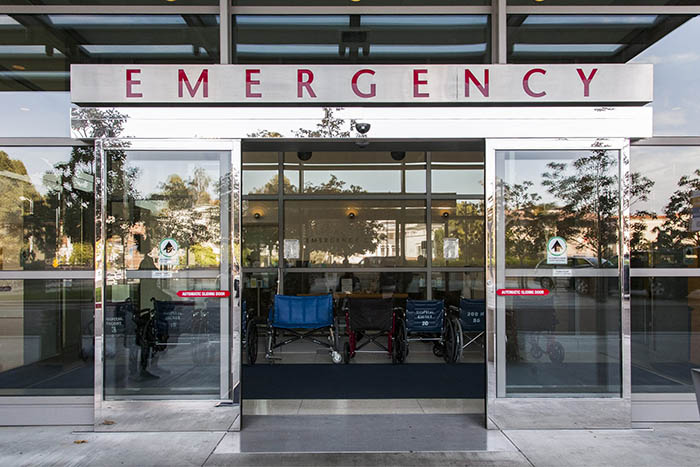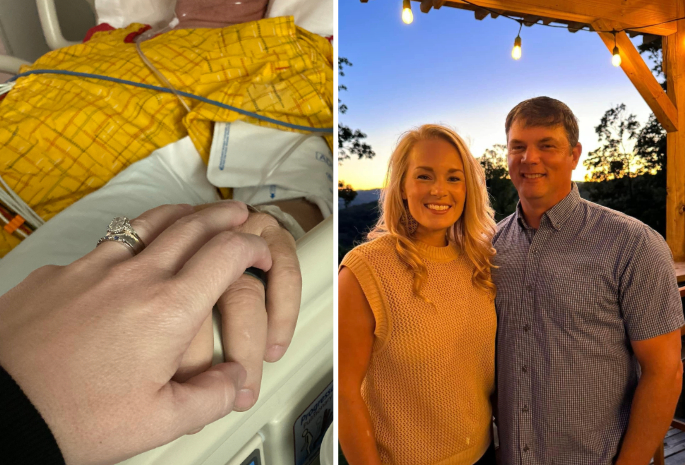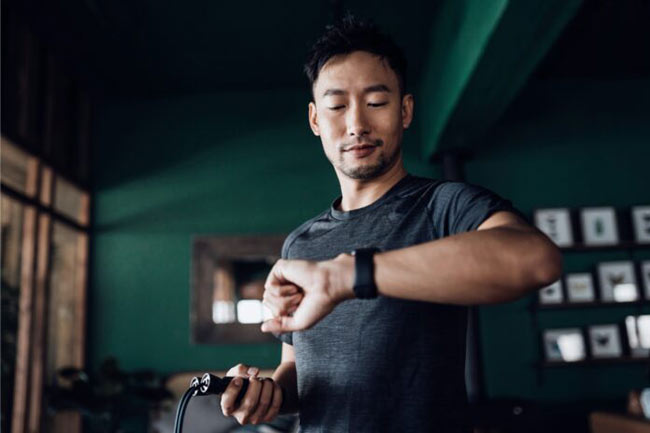The intubation was removed once Toniya was breathing on her own, but she was still sent to have a full-body CT scan. A visit to the cardiac catheterization (cath) lab at that hospital showed Toniya had no blockages — just like the tests Dr. Parashar ran in 2016. But this experience was completely separate from her previous diagnosis. Now, Toniya was diagnosed with severe coronary artery vasospasm, the sudden narrowing of an artery when the vessel’s wall quickly contracts and remains contracted, reducing blood flow to parts of the heart.
To prevent future episodes of cardiac arrest, Toniya was told she’d need an implantable cardioverter-defibrillator (ICD), which uses electric impulses to restore a regular heart rhythm and prevent sudden cardiac death.
At that point, Toniya asked to be transferred to her cardiovascular care team at Emory. From her bed in the ICU, she sent a MyChart message to Dr. Parashar. “That’s how much faith I have in her compassion and clinical expertise,” she says about her trusted physician.
When Toniya’s message came in, it so happened that Dr. Parashar was out of the country for the holidays in Jordan with little cellphone reception. The hospital where Toniya was staying contacted the on-call doctor at Emory and explained that her patient wanted to be transferred to Emory.
It took a few days for a bed to open up at Emory University Hospital, but Dr. Parashar was in touch with Toniya throughout, calling from Jordan to let her know what doctor would be receiving her and advocating for the transfer on her behalf.
Dr. Parashar remembers being impressed by Toniya’s resilience and optimistic outlook during the whole process. “You would think a 39-year-old who had a cardiac arrest and had to be resuscitated would be crying. But when I spoke to Toniya, she was so happy to be alive, and excitedly told me the whole story as if describing a movie she’d just watched.”
Toniya arrived at Emory around 2 a.m. on January 2, and by 9 a.m. she was going to have the procedure to implant her ICD. “Emory does not play around,” she says.
The ICD Toniya received is an especially advanced version called a subcutaneous ICD, which gets attached to the heart via wires. The care team, led by cardiologist and cardiac electrophysiologist Michael Lloyd, MD, placed this specialized ICD under Toniya’s left armpit and attached it to an electrode. This process is far less invasive than traditional ICDs and less likely to involve any complications, Dr. Parashar explains.
“The subcutaneous ICD is ideal for younger patients like Toniya because it does not require wires, or leads, to be placed in the heart through the bloodstream,” says Lloyd. “These types of wires, which are used in other types of defibrillators are the Achilles' heel of traditional ICDs because they are prone to infection and breakdown. This is extremely important for younger patients who expect to live many decades with their devices. The subcutaneous ICD is FDA-approved and Emory has been on the forefront of research to establish this technology.”
Although Toniya’s daughter didn't want to see her mom while sick, the two FaceTimed consistently. “My daughter sent me a list of all these cute things we’d do together when I was back home, including seeing ‘Renaissance: A film by Beyonce,’” Toniya says.
She was discharged from Emory University Hospital two days after she arrived, with instructions not to drive for two months and to follow her new medication routine. She still managed to pick her daughter up from school that day as a surprise, and went home surrounded by her village, including her own mom, who moved in to help with caretaking responsibilities so Toniya’s husband could continue to work.
A New Diagnosis
Because Toniya’s condition was so uncommon, Dr. Parashar referred her to a colleague at another institution for additional consultation. After undergoing a battery of new tests, Toniya was additionally diagnosed with spontaneous coronary artery dissection (SCAD), an emergency condition that occurs when a tear forms in the wall of a heart artery, which can also slow or block blood flow to the heart. Ninety percent of SCAD cases are women, mostly between the ages of 30-60, and the condition accounts for roughly 25% of all heart attacks in women under 60 years old.
The cause of SCAD is unknown, but it is believed that it starts with the artery wall weakening. Possible causes of weakened artery walls are fibromuscular dysplasia, genetics, multiple pregnancies, connective tissue disorder, and hormonal changes, among others. SCAD can also be triggered by highly emotional events or physical stresses.
At Emory Healthcare, there are several experts who treat SCAD. Bryan Wells, MD, a cardiologist Emory Heart & Vascular, brings together patients and national thought leaders for an annual symposium, usually held in the spring.
Planning a Path Forward
While she doesn’t yet have all the answers about what her life will look like one, five, or 10 years from now, Toniya is now working with her Emory team to decrease the risk factors she can control, like her weight, diet, exercising and medication compliance. And since her work doing physical therapy often requires lifting significant weights, Toniya is carefully planning her best path forward with Dr. Parashar.
Part of her recovery has been attending cardiac rehab, which Toniya says has given her the stamina and confidence she needed to live her life again.
“To me, her entire attitude is so inspiring,” says Dr. Parashar. “I see patients who have something happen and are so worried that they forget about living. But with Toniya, she’s living every moment and inspiring others to live, too. That’s outstanding and truly inspiring to me personally.”
This story was first published on news.emory.edu.





